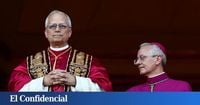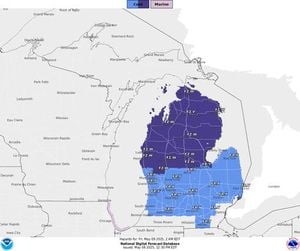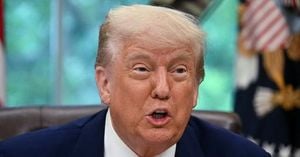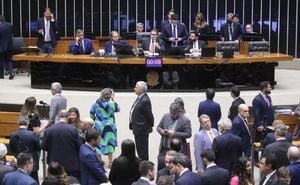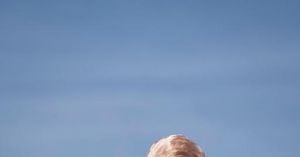In a historic moment for the Catholic Church, Cardinal Robert Francis Prevost has been elected as the new Pope, taking the name Leo XIV. Born on September 14, 1955, in Chicago, Illinois, Prevost has made history as the first American pontiff, marking a significant shift in the Vatican's leadership.
His election was announced with the appearance of white smoke from the chimney of the Sistine Chapel at 18:08 local time on May 8, 2025, signaling to the gathered crowd of approximately 50,000 in St. Peter's Square that a new Pope had been chosen. The crowd erupted in cheers as they celebrated this pivotal moment in the Church's history, with the bells of the Vatican ringing joyously.
Prevost, who is also a mathematician and physicist, brings a unique background to the papacy. He graduated with a degree in Mathematics and Philosophy from Villanova University and has spent nearly three decades working in Peru as a missionary, forming a deep connection with Latin America. His diverse heritage includes Italian and Spanish roots, and he is fluent in several languages, including English, Spanish, Italian, French, and Portuguese, as well as being able to read Latin and German.
In his first address from the balcony of St. Peter's Basilica, Pope Leo XIV expressed gratitude to his former diocese in Chiclayo, Peru, saying, "And if you allow me, I would like to send a greeting... to all those, particularly to my dear diocese of Chiclayo in Peru." His choice to greet his former parishioners in Spanish highlights his commitment to inclusivity and connection with the global Church.
During his address, he called for unity and peace, urging the faithful to help "build bridges of peace" and seek justice without fear. "God loves everyone," he emphasized, echoing the sentiments of his predecessor, Pope Francis, and reinforcing a message of compassion and outreach.
Donald Trump, the President of the United States, congratulated Prevost on his election, calling it a "great honor" for the country. He expressed enthusiasm about meeting the new Pope, highlighting the significance of having an American as the leader of the Catholic Church.
Prevost's election comes at a time when the Church faces numerous challenges, including issues of sexual abuse that have plagued its institutions. He has been accused of covering up abuse cases during his tenure as bishop in Chiclayo, Peru, which may cast a shadow over his papacy. However, his supporters argue that he has the opportunity to demonstrate his commitment to combating such issues and promoting transparency within the Church.
As the 267th Pope, Leo XIV is expected to continue the reformist agenda set by Pope Francis, focusing on decentralization and the empowerment of local churches. His experience as the prefect of the Dicastery for Bishops and president of the Pontifical Commission for Latin America has prepared him for this role, and he is viewed as a candidate of continuity.
In addition to his pastoral work, Prevost has held various leadership positions within the Church, including serving as the prior general of the Order of Saint Augustine, where he oversaw the order's operations in over 50 countries. His extensive background in administration and his dedication to social justice align well with the current needs of the Church.
The UN Secretary-General, António Guterres, also congratulated Catholics worldwide on the election of the new Pope, expressing hope for fruitful collaboration with the Vatican in addressing global challenges.
Prevost's election is seen as a bridge between North and South America, embodying the globalization of the Church. His ability to navigate the complex dynamics of the Vatican while remaining connected to the realities faced by the faithful in Latin America positions him as a pivotal figure for the future of the Catholic Church.
In the coming days, Pope Leo XIV will officiate the solemn ceremony marking the beginning of his Petrine ministry, where he will receive the pontifical symbols, including the 'fisherman's ring' and the 'palio'. This ceremony will solidify his role as the spiritual leader of over a billion Catholics worldwide.
As the world watches, the new Pope's first actions will be closely scrutinized, with many hoping for a renewed focus on peace, justice, and the Church's mission to serve the marginalized. His commitment to being a "missionary" Pope who reaches out to those in need will be key to his leadership and the Church's future.
Ultimately, Leo XIV's papacy represents not just a personal achievement but a broader narrative of change within the Catholic Church, reflecting the diverse and evolving nature of its global community.
